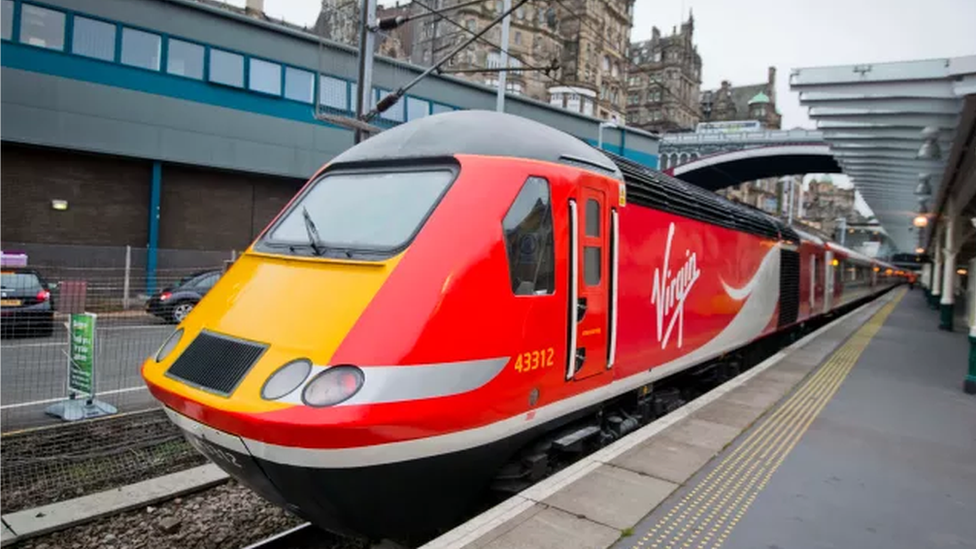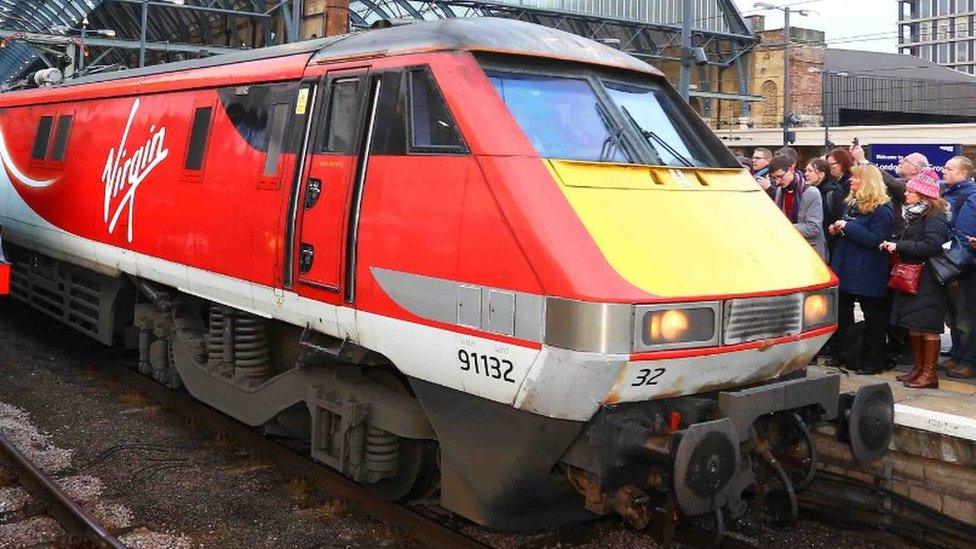East Coast rail franchise decision investigated by watchdog
- Published

The decision to allow two firms operating the East Coast Main Line to cut short the contract is being looked into by the public spending watchdog.
In November, the Department for Transport said Virgin and Stagecoach could withdraw from running the London to Edinburgh service three years early.
The National Audit Office will now investigate the government's handling of the £3.3bn franchise.
Ministers said any suggestion taxpayers would be out of pocket was wrong.
It comes after critics of the decision, including Lord Adonis, former chair of the National Infrastructure Commission, said the move could eventually cost the taxpayer billions of pounds.
Upgrade delays
In 2014, Virgin and Stagecoach signed a deal to run the East Coast line from 2015 to 2023, promising the government £3.3bn in premiums.
However Martin Griffiths, chief executive of Stagecoach, which owns 90% of the joint venture, admitted last year that it had overpaid for the contract.
He said the business had been affected by delays in upgrading the UK's rail infrastructure.
David Horne, managing director of Virgin Trains East Coast, also said last week in a letter to the Transport Select Committee, external that the delays meant that plans to run an enhanced service from May 2019 using its new faster Azuma train fleet could not be fully rolled out across the entire route.
As part of the franchise agreement with the Department for Transport, Virgin Trains East Coast agreed to increase the number of trains running from five per hour to six per hour each way using the Azuma fleet.
Mr Horne said: "It is still not clear when there will be sufficient power to operate a full (electric) service on the London-Edinburgh route, i.e. to deploy the Azuma as mandated by DfT and hence deliver the faster journey times to Leeds and Edinburgh."
Virgin boss Sir Richard Branson has said the deal cost Virgin and Stagecoach more than £100m.
'Bailout' accusation
Transport Secretary Chris Grayling announced last year that the deal to operate the line would be replaced by a new model which would be "a joint venture between the public and private sector, operated by a single management, under a single brand and overseen by a single leader".
Mr Grayling said: "It means when things go wrong, there's one team to sort it out."
But the government has been accused of "bailing out" the franchise by Labour peer Lord Adonis, who nationalised the East Coast Main Line in 2009 when its then operator National Express was unable to make its payments.
Mr Grayling said earlier this month: "It's much more complex than that. Lord Adonis is not involved in this; he's got his facts wrong."
The NAO now says it will examine the decision to cut short the contract, as well as the new East Coast Partnership which will take over its running in 2020.
The NAO said: "We expect to examine the [government] department's management of the franchise to date and the implications of its plans for the new partnership."
A spokesperson from the Department for Transport said: "The government has been very clear - no one is getting a bailout and Virgin Stagecoach will continue to meet its financial commitments made to the taxpayer on the East Coast rail franchise, as it has done since 2015.
"Premium payments continue to flow to the taxpayer, as they currently do, and any suggestion that the taxpayer will be out of pocket is completely wrong."
- Published5 January 2018

- Published29 November 2017
